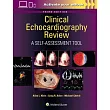Dr Ólöf Guðný Geirsdóttir. Dr Geirsdóttir has developed a strong interdisciplinary research focused on gerontological research in several core areas, including nutritional status, physical function, physical activity and active ageing. Dr Geirsdóttir has background broad experience as a clinical nutritionist at several units at the National University of Iceland. She has contributed to clinical guidelines for patient care, a handbook of food and nutrition for older people, and guidelines in prevention of falls for the Landspítali University Hospital. Dr Geirsdóttir led the work, with the Director of Health, on the Icelandic nutritional recommendations (2018) for older adults and healthy and a nutritional recommendation for sick and frail older people. Recent research works have focussed on associations between nutrition and physical activity among community-dwelling older adults, the nutritional status of sick and frail older adults and how to improve outcomes with nutritional care. In addition to contributing to clinical care and peer reviewed international literature, Dr Geirsdóttir advocates for multidisciplinary nutrition care education across administrative, academic leadership, and educational positions promoting ageing research, for example as the Secretary General of the 25th Nordic Congress of Gerontology.
Dr Jack Bell is a conjoint Principal Research Fellow and Advanced Accredited Practicing Dietitian at The University of Queensland and The Prince Charles Hospital, and is longstanding member of the Queensland Clinical Senate. He has over 20 years’ clinical experience working with older adults and teams to deliver multidisciplinary nutritional care across a variety of settings. Dr Bell is a strong advocate for engaging patients in co-design and shared decision making, and clinicians as co-researchers. As a clinical academic and implementation practitioner, Dr Bell works with patients and diverse players the development, implementation, and evaluation of new models of care directing how malnutrition should be managed in diverse, contemporary settings both in Australia and internationally. Published works are challenging international norms and perceptions regarding how malnutrition care is provided in hospitals, have highlighted the need to adopt systematized, multidisciplinary nutrition care across the continuum to improve outcomes for older adults and those who care for them.



 天天爆殺
天天爆殺  今日66折
今日66折 
























 博客來
博客來 博客來
博客來 博客來
博客來 博客來
博客來 博客來
博客來